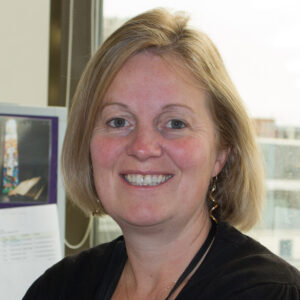Sarah came to the Diocese in February 2015 from her post as Executive Head Teacher of St John’s Church of England Primary School in Sparkbrook, an outstanding primary school in Sparkhill, which she led for eleven years. As a National Leader of Education, she was involved in supporting schools on their journey of school improvement. Sarah works with the Board of Education to plan and lead against its key priorities in supporting our school.
St Michael’s is only one of three secondary schools in the Birmingham diocese and, as a result, our relationship with the diocese is strong. The education team can be contacted directly at education@cofebirmingham.com
The Church of England has been formally providing education through its Church schools for over 200 years. In fact, the Church of England Birmingham can date one of its schools back to the 17th century and supports over 25% of all primary schools nationally
The Church of England Birmingham’s DBE has a strong commitment to ensuring that all people within its schools have the opportunity to flourish, with an understanding of what God desires for humanity. Believing that human beings are ‘created in the image of God’ (Genesis 1.27) our schools should be places where each may learn and grow to become more fully what we were created to be.
The Education team works to support and challenge every school so that they can do their utmost to guarantee that all pupils, given their differing starting points and individual learning needs, will achieve and make at least good levels of progress in English and Maths.
The education arm of the diocese is about supporting schools to enable excellence in our schools within a distinctively Christian framework.
Jesus proclaimed, “My purpose is to give life in all its fullness”, (John 10.10); so our schools have a vital role in promoting and illustrating this vision and in being places where community members can be part of that understanding, both in the present and in the future. Jesus provided a precis of that quality of life when speaking of the most important commandments: “Love the Lord your God with all your heart, soul, and mind” and “Love your neighbour as much as you love yourself”, (Matthew 22:37-39). Therefore, the purpose of education in our schools is the development of whole people who can flourish in all areas of their lives; who recognize their connectedness to others, and who are willing to engage with the world around them. In short: transformed lives with the potential to transform the world.
Taking the pattern of Jesus, Church of England schools should embody welcome, the offering and receiving of forgiveness and respect for integrity, as well as pointing to the better way. We would wish the welcome to be open to all children and staff whether they come from a Christian family, a family of a different faith, or a family of no particular faith background. Our schools are to be places where all can flourish, and where children (and adults) have the opportunities to learn about the Christian faith but have the chance to practice their family faith and to be true to their identity, without fear of prejudice or bullying. Pupils should gain the message that their value is independent of their achievements or success – that it derives from being God’s child and that every child matters to God.
The Board of Education expects all staff in church schools to experience high-quality professional development and performance management so that their professional skill and expertise are of the highest calibre and able to meet the learning needs of pupils from diverse cultural backgrounds within the context of a distinctive Church of England setting. ’Ultimately the question is posed: is every child’s life enriched because of the distinctive ethos of your Church of England School?’


